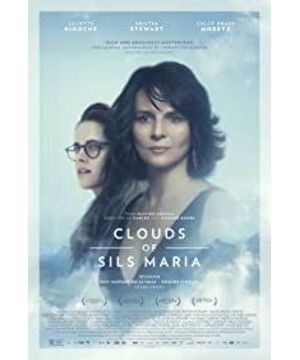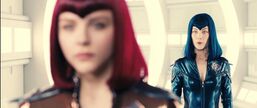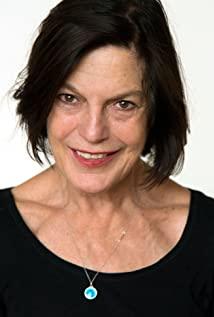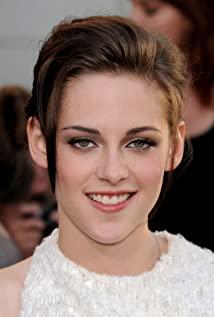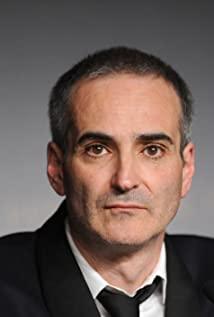Forty-year-old Maria stuck her head out of the car and said something like this, The curly hair that showed a woman's mature charm before was cut into a neat, too neat short hair. She also had sleepy eyes, and the sun was a bit dazzling. Maria didn't know what would greet her next.
We don't know, everything is developing according to our imagination, but the movie directly enters the part tow, the picture suddenly becomes very bright, and the melodious symphony slowly flows along with the suffocating cloud snake. In fact, the familiar canon started to sound from time to time, and played unhurriedly to the end. I see it as an accompaniment to the next phase of Maria's life, witnessing how a woman steps into a truly mature, "no more young" age.
This stage is called transformation. Although it is cruel.
But when the symphony sounded, it had already set the tone: although cruel, it was elegant and beautiful, and it was incomparable.
From confusion to understanding, how many steps does a woman need to take alone?
At the very beginning, Maria still exuded some kind of childish, innocent and cute aura, which was actually a bit awkward, but it was not easy to detect, because this aura could emanate from the gestures of any young man.
She was asked to play the role of a forty-year-old woman in a film, the same work that had made her twenty years earlier. Maria sat on the sofa and argued with Henry slightly angrily: "Helena is also very young, I mean, Helena is not old..." It sounded very weak. Is she so convinced in her heart?
This was the first time that Maria was directly touched by the question of "old age", but she seemed to be swayed by it intentionally or unintentionally. It didn't hurt, but it was so itchy that she couldn't sleep at night.
For the next hour of the film, Maria seems to be unknowingly, but destined to embark on a path of no return: she herself is becoming the Helana of the book: deep inside, lonely, vulnerable, and a hidden desire. The assistant Val has become her dependence and almost the only person in her life. Val got a job that was absolutely free and easy, with the two of them hiking, drinking, swimming in the lake, and practicing filming - just like Sigrid did in Helana. Maria was with her and there were plenty of laughing moments, and they would smoke a cigarette together, sometimes not as close as boss and employee.
Maria even looked like a child in front of her.
She was happy, to be precise, she was at ease. Her life, her concepts, her emotions, were unknowingly trapped in some invisible cage.
Reality and drama intertwine, past and present meet.
Maria was at a loss, even hysterical.
I'm worried she'll actually become Helena in the end: choose suicide.
Here, however, the director uses a subtly dramatic slash to Maria's life strip: Val disappears.
Yes, it just disappeared. The winding mountain road, two people go down and one person climbs up.
Maria sat alone on the hillside, pointing to the cloud snake in the distance, shouting excitedly and murmured in disappointment, like a naive child.
Maybe that was her last innocence.
In fact, I think this moment is more cruel than Alice in "Still Alice" who suffers from Alzheimer's in her forties and starts to forget day by day. There is tension in this cruelty.
Her thin scream disappeared in the mountains. The white snake is silent and flows away gently, as beautiful and dreamy as every time in these decades.
Since then, Maria's short hair has been combed more neatly, her suit has become more handsome, and her expression has become more calm. So when Jo-Ann, a young and arrogant girl who seems to be unconditionally forgiven for causing any trouble, said to her,
"It's time to move on."
Maria sighed with emotion: "I forgot who I was at that time, old man. Habits always come back and I should destroy them." ("I think I'm lost in my memeries, you think you've forgotten your old habbies but they will all come back, have to break them.")
she clicked A cigarette, sitting alone in the scene set up on the stage, smiling faintly, her body is full of inexhaustible charm, her eyes are looking at something in the distance, and she may not see anything at all.
If Jo-Ann's beauty is like a tornado sweeping past people, when you see Maria at this moment, you will be convinced and fall to the ground, but you may not understand what killed you.
When one day, a woman who is no longer young, anxious and sad gets such a precipitation, she will truly understand time, and will find that no matter whether the process is joy or sorrow, time passes, and there are not only wrinkles but also gifts left behind. This process does not necessarily have to have love or the participation of a man. A woman can, and after all, needs to go through it alone.
Sanmao said: "The loss of time is helpless, but the gradual change of people, but the power of time is not free."
Chi Li wrote more open-minded words in the article: "Eternity is eternity, not old age, nor Young. Life and death, the least scary thing in life is time and age."
Assuming time is the proof or proof of existence, what are we talking about when we talk about women in their forties?
I think it's all human beings.
View more about Clouds of Sils Maria reviews


